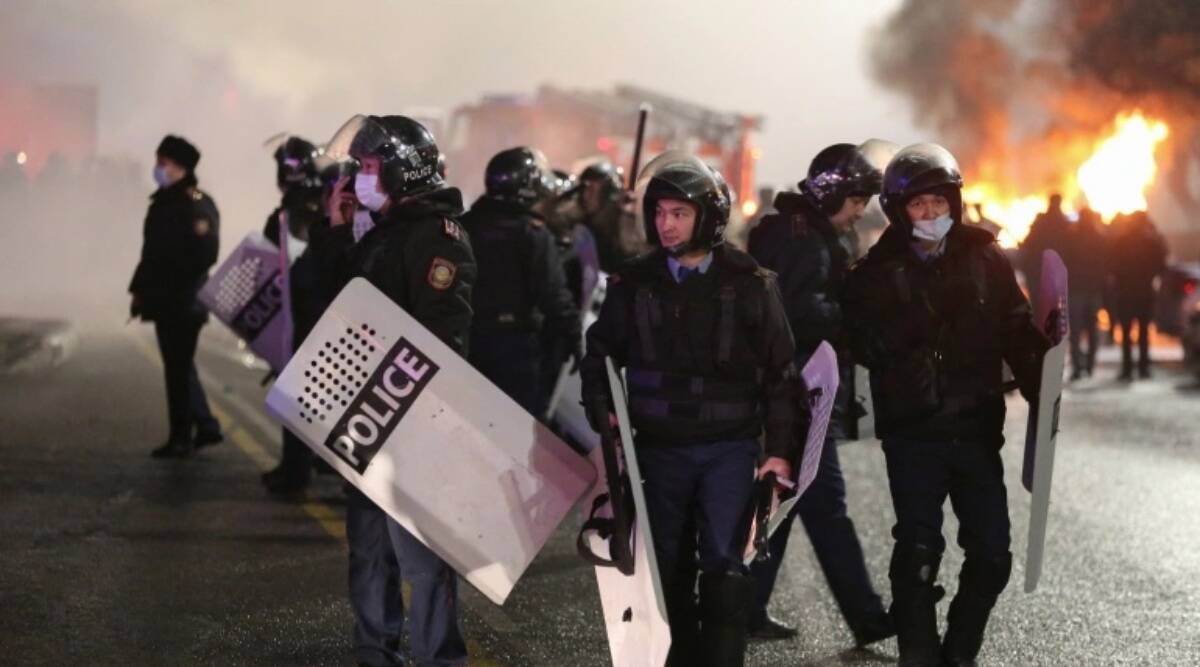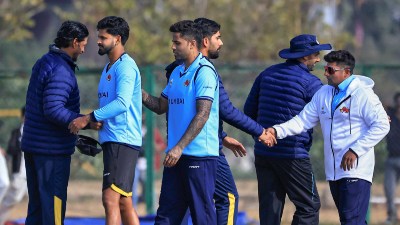Stay updated with the latest - Click here to follow us on Instagram
Thousands detained after Kazakhstan unrest
Almost 6,000 people have been arrested after a wave of protests that triggered a political crisis in Kazakhstan. The violence claimed 164 lives, according to the latest government figures.
 A statement from President Kassym-Jomart Tokayev's office said that "a substantial number of foreign nationals" were among the detainees. (Reuters)
A statement from President Kassym-Jomart Tokayev's office said that "a substantial number of foreign nationals" were among the detainees. (Reuters)The number of people arrested by security forces during the violent anti-government protests in Kazakhstan has reached almost 6,000, the presidential office announced on Sunday.
A statement from President Kassym-Jomart Tokayev’s office said that “a substantial number of foreign nationals” were among the detainees.
Authorities launched a brutal clampdown and were able to largely bring the situation under control in the country’s largest city, Almaty, after Russia responded to President Tokayev’s call for help by sending several thousand soldiers.
“The situation has stabilized in all regions of the country,” the presidential statement said.
On Sunday, US Secretary of State Antony Blinken told ABC News, “The shoot-to-kill order, to the extent it exists, is wrong and should be rescinded.”
What is the aftermath of the violence?
State television, citing the country’s health ministry, reported on Sunday that 164 people were killed during the unrest and over 2,200 were injured. This marks a sharp jump from a previous toll provided by the government, when officials said 40 people have died, including protesters.
Speaking from the Kazakh capital Nur-Sultan on Sunday, Interior Minister Yerlan Turgumbayev gave a rundown of the damage he claimed was left by the protests and clashes over recent days.
Some 400 cars, mostly police cars, were destroyed in the violence, as well as over 100 shopping centers and banks.
Detainees are facing charges of violence against government officials, hooliganism, murder and theft, with 125 pretrial investigations already having begun.
Citizens took to the streets following a steep rise in fuel prices last weekend, but the protests quickly grew in scope to encompass a series of economic and political grievances. Most of their anger was directed at the country’s former President Nursultan Nazarbayev, who led the country from the breakup of the Soviet Union in the early 1990s before stepping down and naming Tokayev as his successor in 2019. However, Nazarbayev kept control of the country’s powerful Security Council, and was only ousted by Tokayev during the latest unrest.
After the violence led to dozens of deaths among both protesters and security forces, President Tokayev ordered the security forces to open fire at protesters without warning.
He referred to the protesters as “bandits” and “terrorists.”
Peacekeeping forces from the Russia-dominated Collective Security Treaty Organization (CSTO) entered the country in their thousands after Tokayev appealed for assistance against the protests.
- 01
- 02
- 03
- 04
- 05






























